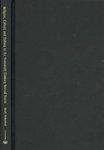
Book Summary
Anyone who seeks to understand the dynamics of culture and politics in the United States must grapple with the importance of religion in its many diverse and contentious manifestations. With conservative evangelicals forming the base of the Republican Party, racial-ethnic communities often organized along religious lines, and socio-political movements on the left including major religious components, many of the country's key cultural-political debates are carried out through religious discourse. In this volume, Mark Hulsether leads readers on a tour of religion in the United States. He introduces key players and offers a set of case studies to explore the interaction of these players with major trends in U.S. cultural history. Students in American studies and cultural studies will especially appreciate how Hulsether frames his analysis using categories such as cultural hegemony, race and gender contestation, popular culture, and empire, enabling a more informed and constructive discussion of religion in these fields. Hulsether offers a synthesis that is concise yet internally complex and dynamic--one that gives special attention to religious diversity and conflict, the relations between religious groups and broader historical trends, and the internal struggles of religious people as they set priorities and cope with emerging change.
Book Details
| Book Name | Religion, Culture, And Politics In The Twentieth-Century United States |
| Author | Mark Hulsether |
| Publisher | Columbia University Press (Sep 2007) |
| ISBN | 9780231144025 |
| Pages | 249 |
| Language | English |
| Price | 4730 |








